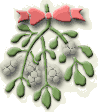Okay, we've had to 'move' because someone keeps trying to 'hack' into our blog & cause problems....so, the new blog address:
ourlordswill.blogspot.com
hope to see you there!
Wednesday, December 22, 2010
Tuesday, December 21, 2010
Recipe of the day
Truffle Cake with Candy Cane Cream Recipe

- 16 Servings
- Prep: 35 min. Bake: 40 min. + chilling
Ingredients
- 1 cup graham cracker crumbs
- 1 cup chopped pecans, toasted and coarsely ground
- 2 tablespoons plus 3/4 cup sugar, divided
- 1/4 cup butter, melted
- 16 ounces semisweet chocolate, coarsely chopped
- 1 cup heavy whipping cream
- 6 eggs
- 1/3 cup all-purpose flour
CREAM:- 1 cup heavy whipping cream
- 2 tablespoons sugar
- 4 candy canes, finely ground
- 1/4 to 1/2 teaspoon peppermint extract, optional
Directions
- Combine the cracker crumbs, pecans, 2 tablespoons sugar and butter; press onto the bottom and 1-1/2 in. up the sides of a greased 9-in. springform pan. Place pan on a baking sheet.
- In a large saucepan, cook chocolate and cream over low heat until chocolate is melted. Cool. In a large bowl, beat the eggs, flour and remaining sugar on high speed until thick and lemon-colored, about 5 minutes. Gradually beat in chocolate mixture.
- Pour batter into prepared crust. Bake at 325° for 40-45 minutes or until center is almost set. Cool on wire rack for 10 minutes. Carefully run a knife around edge of the pan to loosen; cool 1 hour longer. Refrigerate for 4 hours or overnight.
- Beat cream and sugar until stiff peaks form; fold in ground candy and extract if desired. Serve with cake. Yield: 16 servings.
Daily Devotional
Being kind to the poor is like lending to the Lord; he will reward you for what you have done. Proverbs 19:17
When you take food to the poor, that’s an act of worship. When you give a word of kindness to someone who needs it, that’s an act of worship. When you write someone a letter to encourage them or sit down and open your Bible with someone to teach them, that’s an act of worship.
Poem of the day
In the secret of His presence
How my soul delights to hide!
Oh, how precious are the lessons
Which I learn at Jesus' side!--Goreh
Joke of The Day
Dirty Magazines
An army major called his wife to tell her that he would be late home because dirty magazines had been found in the barracks, and the soldiers responsible were facing serious disciplinary action.
"The punishment sounds a little harsh," she said. "After all, most of the soldiers have pictures of women on the walls of their quarters."
"No, honey,," he explained patiently. "Dirty magazines means the clips from their rifles had not been cleaned properly!"
Word of the day
Mistletoe:
Part of Speech: Noun, mass
Meaning: A semiparasitic shrub of the family Viscaceae with thick evergreen leaves and waxy white berries, that grows on deciduous trees.
Part of Speech: Noun, mass
Meaning: A semiparasitic shrub of the family Viscaceae with thick evergreen leaves and waxy white berries, that grows on deciduous trees.
Notes: As it grows, mistletoe accumulates the magical power to grant anyone the right to kiss anyone else standing beneath it. How it does that, scientists have not yet been able to determine. In England you are obliged to pluck a berry from the twig each time you take advantage of this power, thereby exhausting the twig bit by bit. In the US, however, we leave the berries up and indulge ourselves until no one is left whom we haven't labially offended.
In Play:  Although it began as a symbol of good luck, mistletoe today is ineluctably associated with holiday kissing: "This grapefruit makes me pucker more than a tree full of mistletoe." Unfortunately, its magical powers are non-selective, so you might hear something like this: "I would sooner eat the mistletoe than kiss him." Of course, you want to watch your language around the holidays. Avoid crude insults like, "Kiss my . . . whatever" in favor of more genteel suggestions like, "As I walk away, kindly imagine mistletoe on my coattail."
Although it began as a symbol of good luck, mistletoe today is ineluctably associated with holiday kissing: "This grapefruit makes me pucker more than a tree full of mistletoe." Unfortunately, its magical powers are non-selective, so you might hear something like this: "I would sooner eat the mistletoe than kiss him." Of course, you want to watch your language around the holidays. Avoid crude insults like, "Kiss my . . . whatever" in favor of more genteel suggestions like, "As I walk away, kindly imagine mistletoe on my coattail."
 Although it began as a symbol of good luck, mistletoe today is ineluctably associated with holiday kissing: "This grapefruit makes me pucker more than a tree full of mistletoe." Unfortunately, its magical powers are non-selective, so you might hear something like this: "I would sooner eat the mistletoe than kiss him." Of course, you want to watch your language around the holidays. Avoid crude insults like, "Kiss my . . . whatever" in favor of more genteel suggestions like, "As I walk away, kindly imagine mistletoe on my coattail."
Although it began as a symbol of good luck, mistletoe today is ineluctably associated with holiday kissing: "This grapefruit makes me pucker more than a tree full of mistletoe." Unfortunately, its magical powers are non-selective, so you might hear something like this: "I would sooner eat the mistletoe than kiss him." Of course, you want to watch your language around the holidays. Avoid crude insults like, "Kiss my . . . whatever" in favor of more genteel suggestions like, "As I walk away, kindly imagine mistletoe on my coattail." Word History: This Word in Old English was mistiltan "mistletoe twig" from mistil, mistel "mistletoe" + tan "twig". The Old English word for mistletoe, mistel, was probably a diminutive of mist, a word to which it seems related. It may also be related to missel as in 'missel thrush', a bird known to propagate mistletoe. Toe clearly arose via folk etymology after the loss of tan in English—don't those white little berries look just like a baby's toes? The Celtic and Norse peoples considered mistletoe powerful magic. They hung sprigs of it over doors to stave off evil and attract good fortune. If warring parties met in the forest and noticed mistletoe growing in a tree, according to tradition, they were sorely pressed to lay down their arms (though not to kiss and make up).
Monday, December 20, 2010
Subscribe to:
Posts (Atom)








